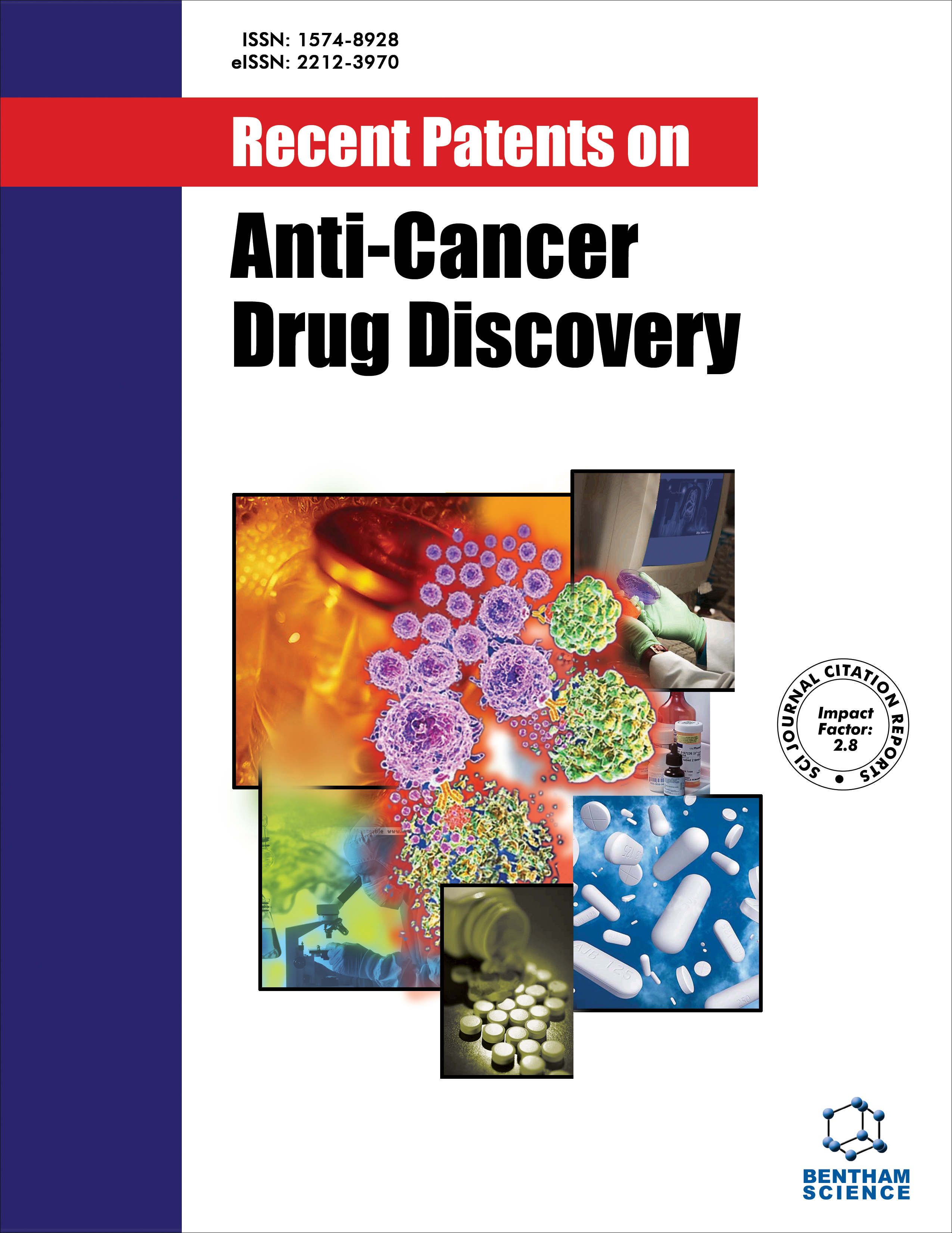-
s Insights into Angiogenesis in Non-Small Cell Lung Cancer: Molecular Mechanisms, Polymorphic Genes, and Targeted Therapies
- Source: Recent Patents on Anti-Cancer Drug Discovery, Volume 7, Issue 1, Jan 2012, p. 118 - 131
-
- 01 Jan 2012
Abstract
Lung cancer is a highly prevalent disease worldwide. Currently, there are more than 150 million patients with lung cancer in the world, with more than 1 million new cases diagnosed per year. Tumoral angiogenesis is an important hallmark of this disease, but despite being extensively studied, the complete angiogenic mechanisms are not fully elucidated. Recent studies have reported a correlation between pharmacological inhibition of these angiogenic mechanisms and improvement of overall survival in lung cancer patients, mainly for those in advanced stages. The family of vascular endothelial growth factor (VEGF) proteins has critical roles in tumoral angiogenesis. An interaction between VEGF-A and VEGF receptor 2 (VEGFR-2) is the main pathway of activation and maintenance of angiogenesis. In tumors, this process is intimately correlative with progression and metastasis. Some studies suggested that serum levels of VEGF are higher in patients with lung cancer, especially in some types of non-small cell lung cancer (NSCLC). Other studies revealed that genetic polymorphisms of VEGF correlate with susceptibility, prognosis, and therapeutic response of some patients with NSCLC. This paper aims to review the impact of angiogenesis, especially on VEGF pathways, in NSCLC, and highlights the relevance of known and new patents disclosed of anti-angiogenic therapies in these patients.


